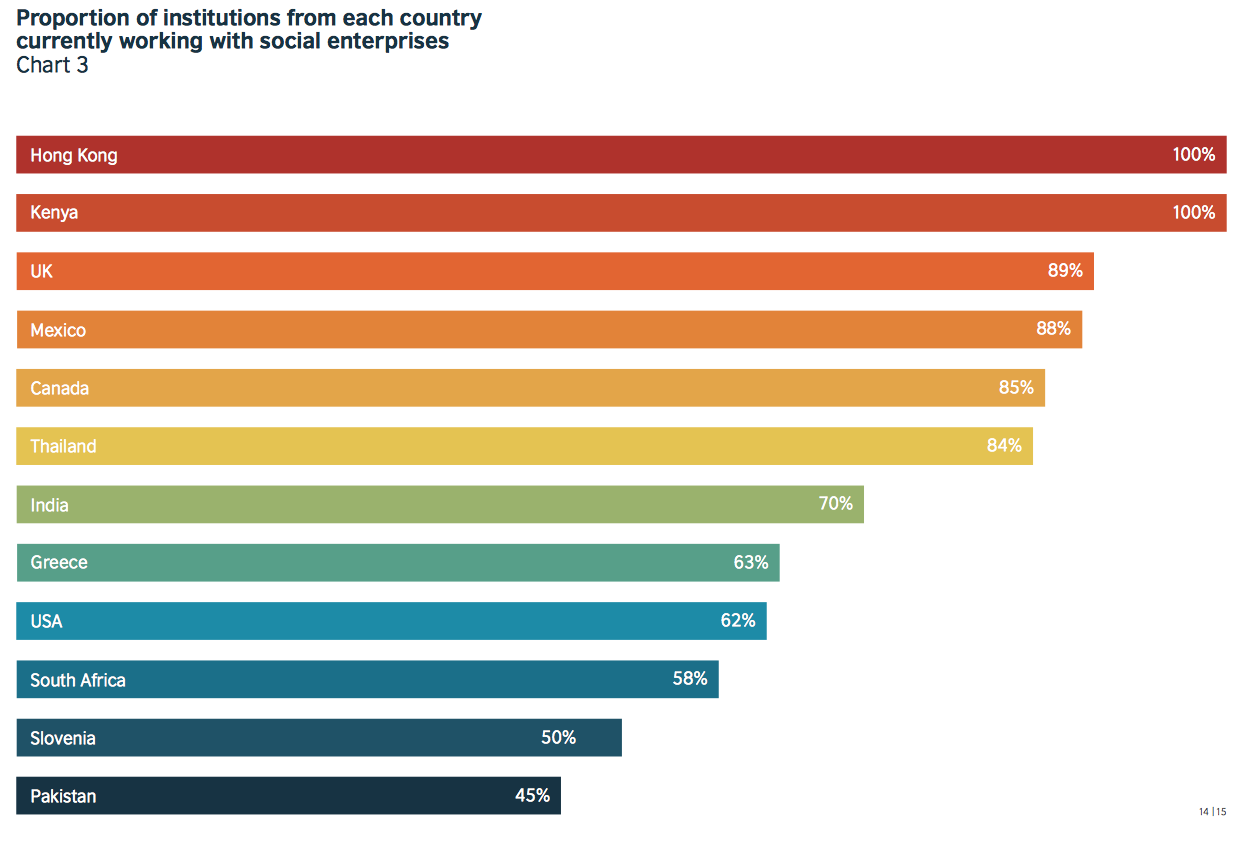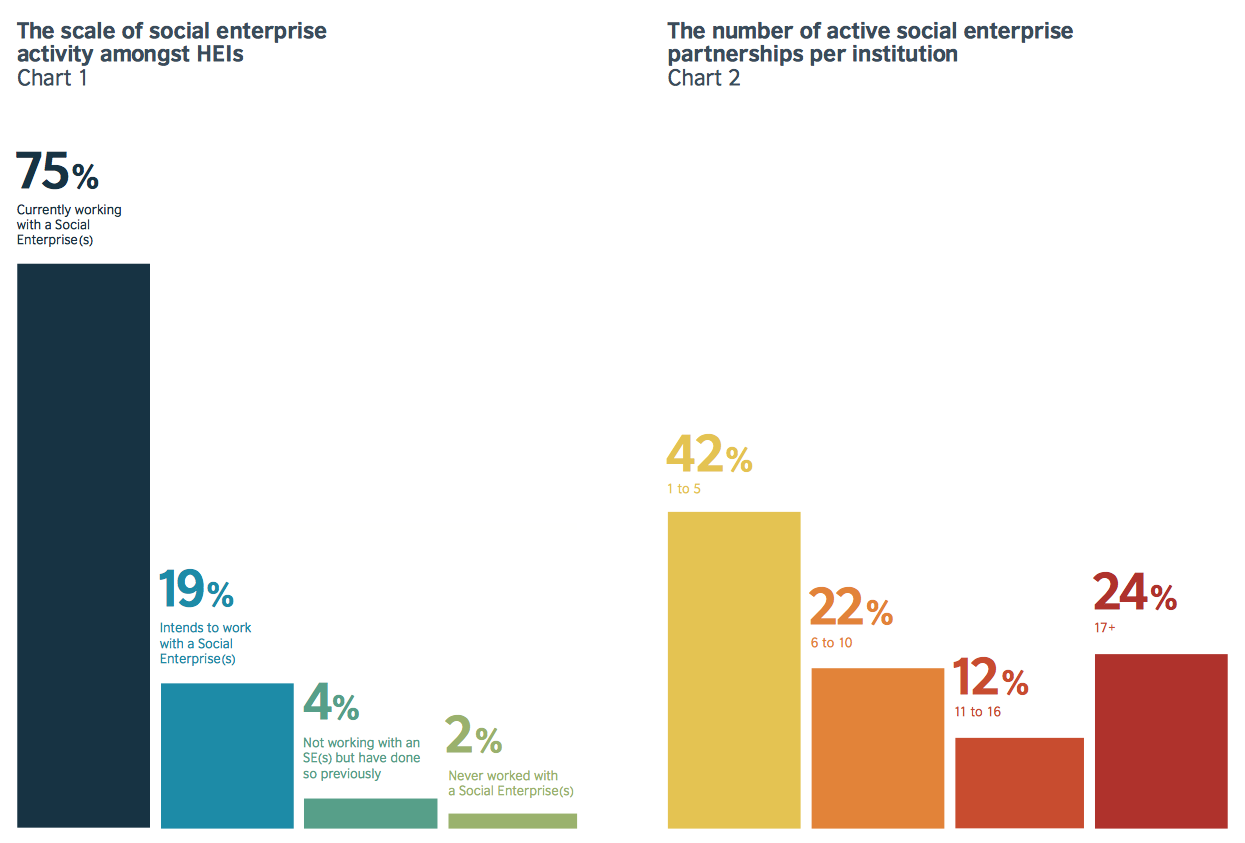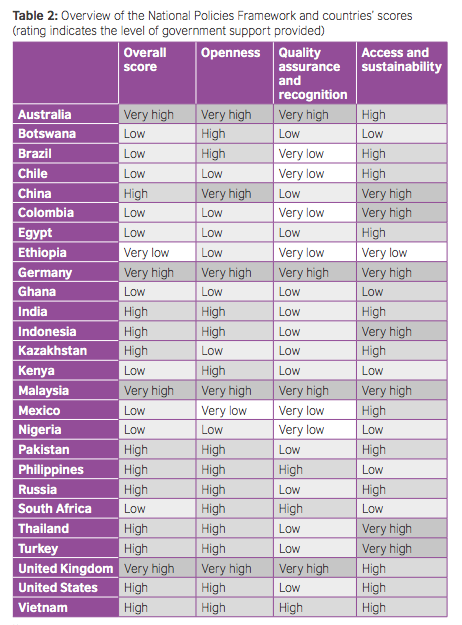 The British Council has published two new reports, Social enterprise in a global context: The role of higher education institutions and The Shape Of Global Higher Education: National Policies Framework for International Engagement – Emerging Themes.
The British Council has published two new reports, Social enterprise in a global context: The role of higher education institutions and The Shape Of Global Higher Education: National Policies Framework for International Engagement – Emerging Themes.
Social enterprise in a global context: The role of higher education institutions
The research presented in the report covered over 200 HEIs in 12 countries (Canada, Greece, Hong Kong, India, Kenya, Mexico, Pakistan, Slovenia, South Africa, Thailand, the UK and the US. The idea behind the range was to avoid data being skewed by focusing on specific geographies, structures or level of economic development. Data collection included the use of secondary sources, an online survey and semi-structured interviews.
 Findings were that ’75 per cent of the institutions surveyed are actively involved with at least one social enterprise and over half of these are also engaged in an international social enterprise partnership’; ‘…only 2 per cent of HEIs had not previously worked with a social enterprise’ (pg 4).
Findings were that ’75 per cent of the institutions surveyed are actively involved with at least one social enterprise and over half of these are also engaged in an international social enterprise partnership’; ‘…only 2 per cent of HEIs had not previously worked with a social enterprise’ (pg 4).

The report made the following recommendations to improve knowledge exchange and collaboration between both HEIs and Social Enterprises:
- ‘Increased levels of knowledge exchange and experience are required to strengthen interaction, whilst also supporting and promoting new partnerships.
- Further support for impact assessment, especially at an institutional level, will provide a clearer recognition of the value of engagement for students, staff, and communities.
- Embedding social enterprise into HEI strategies and plans was identified as a key driver for institutional engagement, although further exploration and understanding of global mission statements would lend additional clarity to this approach.
- Social enterprise is a key mechanism to enhance student employability. As such, policy makers could consider methods of sharing good practice, whilst HEIs could
use this approach to enhance employability to differentiate themselves. - HEIs increasingly embrace their role as enablers of social entrepreneurship, through introducing students to the concept of social enterprise, broadening both their awareness of the opportunities available, but also providing them with the confidence to establish their own social enterprise.
- Reviewing approaches to procurement and HEIs position as anchor institutions has the potential to increasingly utilise social enterprise as providers of services
and infrastructure. - Further research, in the context of the study findings, will enable a more granular exploration of themes such as the contribution of the HEI supply chain, and the impact of social enterprise on graduate employability.’
The report demonstrates that ‘a truly international approach is not one-dimensional, but multi-faceted’, focusing on the HE landscape nationally in 26 different countries.

The research finds that there has been a rise in HE legislation supporting the internationalisation agenda, and that ‘student mobility is one on of the best developed areas of national-level policies…’. Financial support for accessibility to HE, and the prevention of brain drain, is also demonstrated. This area requires countries to work together and coordinate their national policies: ‘policy co-ordination is likely to counteract some of the unintended consequences of international higher education, such as brain drain’.
Other findings also highlight quality assurance as a weakness in many countries investigated.
The publication demonstrates that there is a surge in nation’s commitment and investment in international higher education, which is reflected in reformed to national HE legislation.